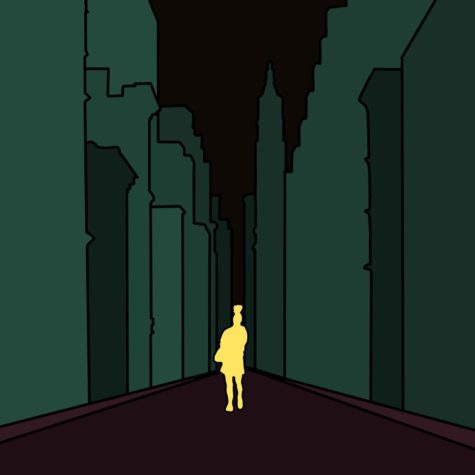In my skin, I am afraid walking alone at night
November 10, 2021

A few days ago, when I got to my dorm room after my routine evening walk from the Commons, I received an unfamiliar iPhone notification. It alerted me that I had an unknown “accessory” near me that had been around me throughout the day. Remembering the horrifying articles I had read about using AirTags as a stalking tool, I was scared out of my wits.
I have since found comfort in the shared experiences by other iPhone users who collectively think it’s just a bug. However, I was walking alone at night, as I will inevitably have to do every once in a while. So, what if it wasn’t a bug? What if it happened for real in the future?
I must now think about the frightening possible outcomes of me innocently walking alone late at night.
A 2017 survey revealed that I am not the only one with these fears. The survey showed that 30% of respondents were afraid to walk within a one mile radius of their homes at night.
This fear of walking alone at night is logical. Criminal activity such as murder, sexual assault and robbery increases in frequency at night.
The same survey suggests that American women express higher levels of fear than American men, with a 20% difference between the sexes when it comes to walking alone after nightfall.
Often employing various safety measures, many women move around at night in constant fear of any possible lurking danger. This is only fueled by kidnappings and attacks targeting women in these same circumstances.
Gender is not the only factor that influences an individual’s experiences as they commute after sunset. A survey conducted in 2020 investigated how people’s race affects their sense of safety as they walk alone in their community at night. According to the data, Black Americans are the racial demographic who feel the most unsafe walking at night.
So, what happens when someone is both Black and a woman? Intersections like these create unique experiences for people and must be recognized together.
In alignment with the 2017 survey, the 2020 survey found women to be less likely to feel safe walking at night in their community. Specifically, Black women were 20% less likely to to feel safe in such circumstances and were the least likely demographic group to feel safe walking alone at night in general.
As a Black girl, these intersections matter to me because they define my reality. In that, knowing that all the numbers work against me is both frightening and empowering. Now, I am left with a choice: will I cower in this fear and simply not walk outside at night, or will I challenge the system and step out prepared?
Inspired by Darby Smith’s article, I do not want to live in fear. I want to walk in my own community like everyone else whenever I want, without having to worry about the footsteps behind me. However, like Smith writes, we can only achieve it together. So, let us have each other’s backs.






















Mary Kay O'Grady • Nov 16, 2021 at 7:35 pm
Women no longer have that freedom. Realistically, you need to be able to call for an escort when coming home after dark. Horrible, but true.